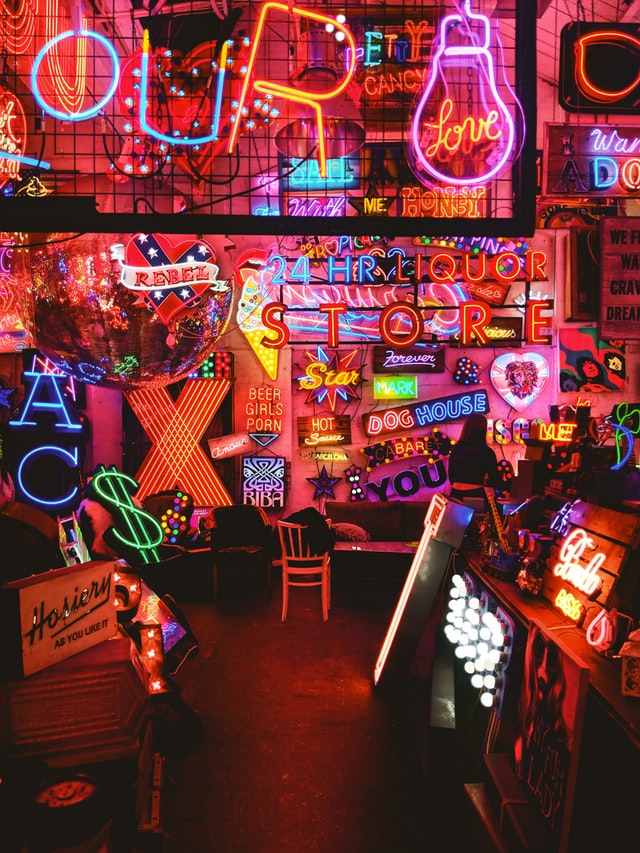
The COVID-19 pandemic has changed everything, from how we work and shop to how we communicate and learn.
Worryingly, governments have overtaken market forces in deciding economic winners and losers, with arts spaces ending up among the biggest losers despite well-documented evidence that the sector is a major driver of growth.
Aside from their direct economic contributions, we need arts venues to recover because they are the optimal stages to refine a sense of wonder. Wonder is the sense of “wow” emerging when our abilities to neatly explain or categorize what we are seeing fail. It is an indicator that our mental frames have been broken by new content.
It’s also a feeling of discontent with the status quo, turning our attention to unrealized potential: future customers, possible innovations, new alliances. It encourages us to think about the collective dimensions of our identity and efforts. It’s a force that transforms.
My research findings demonstrate how honing imagination and wonder is essential to creating cultures dedicated to innovative and responsible corporate practices demanded by a growing majority of workers. That is why any society hoping to build back better must start by supporting their arts venues, the training ground for wonder.
Activating wonder
In researching my new book, Connected Capitalism: How Jewish Wisdom Can Transform Work, I took a deep dive into the critical role that wonder plays in building innovative cultures.
Our work lives must provide not only financial rewards, but intellectual meaning, emotional connection and awe-inducing wonder. Most of us are familiar with the first two, desiring meaning in the work we do and valuing the connections that emerge from co-operative partnerships formed in the workplace.
But wonder is often a blind spot. Many of the executives and policy-makers I interviewed operate under the misguided belief that activating wonder somehow requires us to detach from the challenges of the material world.
While we may not name it as such, many of us experience wonder in concert halls, galleries and theatres, spaces where we encounter weird sounds, unusual colours and strange ideas. Honing a sense of wonder in the unique setting of arts venues will equip us for the type of rebuilding demanded by turbulent times.
Journey without a known outcome
My last book, Fifteen Paths, documents the year I spent learning about the power of wonder and imagination by hanging out with iconoclastic artists. In the spring of 2019, to celebrate the book’s release, I organized events with some of the artists, inviting audiences to join our unrestricted conversations about politics, capitalism and creativity. We met at concert halls and galleries in Toronto, San Francisco, and Brooklyn, N.Y. — in the latter case, at the now-shuttered art space Rough Trade, a painful reminder today of the cost the pandemic has had on independent arts.
At Rough Trade, a few months before the pandemic, Sonic Youth’s Lee Ranaldo explained to me how, when we go to a gallery to experience an art exhibit or head to a theatre to attend a concert, we are committing to a journey without a known or definitive outcome.
That simple act is the initial step in stimulating a sense of wonder. Pursuing an experience as an ends in itself is antithetical to outcome-focused business environments where there is concern about “getting off-track” with experimentation. As Ranaldo said, “that’s where innovation comes … when you are threatening the stability of things and knocking some plates off their spindles you are potentially pushing the conversation, and therefore the culture, forward.”
Getting over fear of the unknown
Also in Brooklyn, Wilco’s Nels Cline discussed another point in the wonder journey: getting over the fear when facing the unknown. He compared it to the aversion one might have to off-putting sounds. But sharpening our sense of wonder empowers us to stick with the discomfort and engage in potentially radical explorations.
Improvising live music only emerges when artists embrace discomfort. Cline hopes that non-musicians open themselves up to wonder, knowing that if we’re not feeling a little uncomfortable or uncertain, then we’re probably not in the process of creating something transformational.
As policy-makers begin executing post-pandemic reopening strategies, they need to know arts venues matter not just because of the revenue they generate, which could be replicated by replacement industries, but because of the societal resources they are uniquely positioned to develop.
Consequently, it’s critical to make entry to arts venues accessible. Prior to the pandemic, the Art Gallery of Ontario announced plans to either eliminate or dramatically lower admissions fees, joining other galleries with similar approaches. Such efforts need to be continued, despite the near-term funding crunch.
Go experience art
Equally important, however, is the type of work audiences encounter once inside the admission gates. Curators and artistic directors should not shy away from programs that may be disorienting or uncomfortable to a popular audience because that’s the path to wonder. Wonder occurs precisely when what confronts us is difficult to process, interpret or immediately understand.
Arts managers have always faced the challenging trade-off between artistic integrity and the ability to reach a larger audience. But if what we’ve said about wonder is true, there’s reason to hope opting for the former will serve the latter. Audiences will seek out the opportunity to experience the mysterious or disturbing elements of art as practice for navigating a turbulent business environment.
As for the rest of us: Go experience art, especially if it was not a pre-pandemic habit! While this prescription might strike some as an oversimplification, many of us don’t have the opportunity to hone our sense of wonder.
In the business world, we’re told these feelings slow down strategy execution and raise the costs of doing business. But efficiency is not a value that should be prioritized when rebuilding. Until wonder is welcomed in all work spaces, the health of our society is contingent on the ability to experience and refine the sense in artistic spaces.
By: David Weitzner
Assistant professor, Administrative Studies, York University, Canada
Disclosure statement
David Weitzner does not work for, consult, own shares in or receive funding from any company or organisation that would benefit from this article, and has disclosed no relevant affiliations beyond their academic appointment.
This post was originally published at The Conversation.


